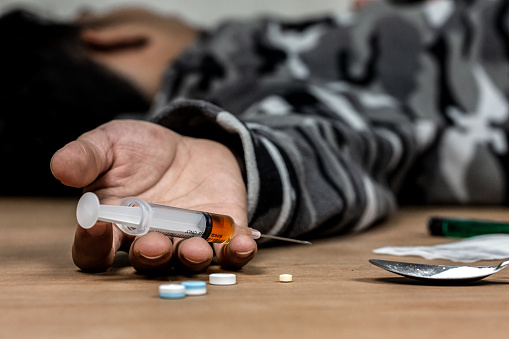Drug overdose is a critical public health issue that claims countless lives every year. Understanding the health consequences associated with drug overdoses is crucial in order to raise awareness, provide support, and implement effective prevention strategies. This article delves into the devastating health effects of drug overdose, shedding light on its physical, psychological, and social repercussions.
The Physical Toll
The human body is profoundly affected by drug overdose, often leading to severe physical consequences. Overdosing on opioids, for instance, can cause respiratory depression, leading to a lack of oxygen supply to vital organs, potentially resulting in brain damage or even death. Stimulant overdoses, on the other hand, can result in elevated heart rate, high blood pressure, and seizures. Additionally, drug toxicity can damage the liver, kidneys, and other organs, leading to long-term health complications and the need for ongoing medical care.
Mental and Emotional Impact
The psychological toll of a drug overdose extends far beyond its physical repercussions. Survivors often experience profound emotional trauma, including guilt, shame, and anxiety. Post-traumatic stress disorder (PTSD) may develop as a result of the traumatic event. Substance abuse disorders and mental health conditions, such as depression and anxiety disorders, are also common among individuals who have experienced a drug overdose. These co-occurring disorders require comprehensive treatment approaches that address both the substance use and mental health aspects.
Social Consequences
Drug overdoses not only affect the individual, but they also have far-reaching social consequences. Families and loved ones are devastated by the loss or near loss of someone they care about, often enduring grief, stress, and financial burdens. Communities also bear the brunt of drug overdose incidents, including increased strain on healthcare systems, law enforcement, and social support networks. Stigma surrounding substance abuse can exacerbate the isolation and shame experienced by survivors, making it even more challenging to seek help and support.
Long-Term Health Complications
Even after surviving a drug overdose, individuals may face long-term health complications. Prolonged substance abuse can damage vital organs, leading to chronic health conditions such as liver disease, cardiovascular problems, and respiratory disorders. Furthermore, the risk of future overdoses remains elevated for those who have experienced a previous overdose. Long-lasting effects on cognitive function, memory, and concentration are also possible, impairing an individual’s ability to lead a fulfilling and productive life.
Wrapping It Up
The health effects of a drug overdose extend well beyond the immediate crisis. From physical consequences to mental and emotional trauma, the toll on individuals, families, and communities is immense. Recognizing and addressing the devastating impact of drug overdose is vital for prevention, intervention, and providing support to those affected by this pervasive public health issue.
In summary, drug overdose wreaks havoc on both the body and mind, with repercussions that can last a lifetime. By raising awareness, promoting prevention efforts, and ensuring access to comprehensive treatment and support services, we can work together to combat this epidemic and save lives.
Read More: How Does Lab 2 Blabber Revolutionize Scientific Research?




[…] Read More: What are the Health Effects of a Drug Overdose? […]